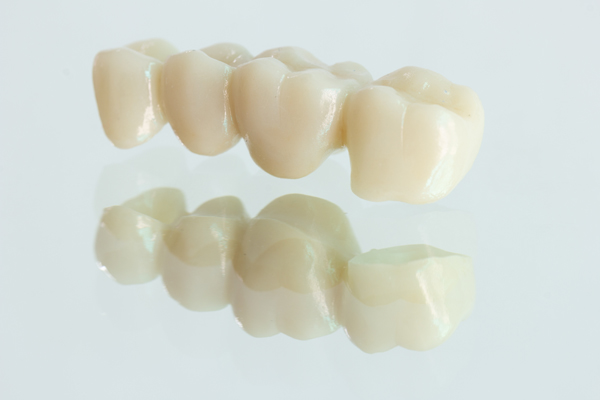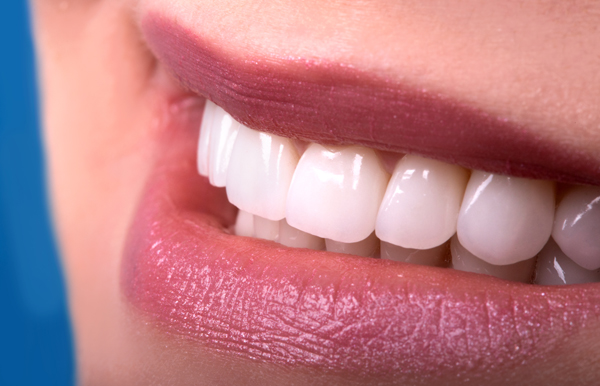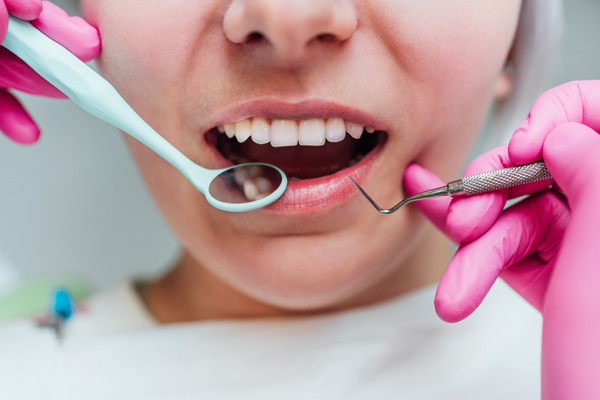Understanding the Process for Dental Bridges

Dental bridges are oral prosthetics designed to bridge the gap left behind by a missing tooth. Their primary aim is to restore the appearance and function of a smile. Partnering with a general dentist can help you reap the benefits of these prosthetics in two appointments.
What are dental bridges?
Dental bridges consist of one or more prosthetic teeth, known as pontics, anchored by dental crowns placed on the adjacent teeth. These supporting teeth, called abutment teeth, serve as a foundation for the bridge, ensuring stability and comfort. Dental bridges typically comprise durable materials such as porcelain, ceramic, or metal, designed to blend seamlessly with natural teeth.
Dental bridges not only improve the appearance of a patient's smile but also prevent neighboring teeth from shifting, preserve facial structure, and restore normal speech and chewing function. Further, they can replace up to four consecutive missing teeth.
The dental bridge process
The dental bridge process requires two appointments. The first involves preparing the abutment teeth, gathering the necessary measurements for the dental bridge, and placing a temporary bridge. The second will involve bonding the permanent dental bridge and making minor adjustments if necessary.
To start, the dentist will employ a local anesthetic to prevent discomfort during the procedure. Depending on how many abutment teeth will be necessary to help the bridge span (one or two), the dentist will prepare them by shaving and shaping them to ensure the crowns fit snugly. Next, they will take a mold or use 3D imaging to gain measurements of the space and size of the abutment teeth before sending the information to an outside lab. Finishing the appointment, the dentist will place a temporary bridge over the recently treated space to prevent pain while eating and drinking and allow for proper oral function.
Approximately two weeks later, the patient will return to the office for the second appointment. The dentist will remove the temporary bridge, which should not be painful. However, they may also test the abutment teeth to ensure they are still "alive," meaning the nerves are in working order and blood is still flowing through the tooth. This portion may be discomforting, but only for a few seconds. Next, the dentist will test the fit of the dental bridge without bonding it into place, making minor adjustments if necessary. Once happy with the fit, they will bond it into position using a special dental cement.
Caring for dental bridges
Proper care for a dental bridge is essential to maintaining its longevity and functionality. Following the first 48 hours of the procedure, patients must avoid flossing near their dental bridges to prevent dislodging. During this timeframe, they should also avoid tough, sticky, or chewy foods.
Following the first two days, patients should brush twice daily and floss around the bridge to prevent plaque buildup, as trapped food particles can lead to decay in the abutment teeth. Using a floss threader or interdental brush can help clean under and around the bridge. Regular dental check-ups are crucial for monitoring the bridge's condition and ensuring that the surrounding teeth and gums remain healthy. Further, a balanced diet, avoiding overly hard or sticky foods, helps reduce stress on the bridge and minimizes the risk of damage. According to the Cleveland Clinic, dental bridges can last up to 15 years with consistent oral hygiene and care, maintaining function and appearance.
Contact Western Iowa Dental to replace missing teeth
The process for dental bridges is straightforward, with each step designed to ensure a comfortable, well-fitting, and long-lasting prosthetic. By restoring function, appearance, and oral health, dental bridges are an effective restorative option for patients with missing teeth. If you are missing one or multiple teeth, contact Western Iowa Dental to schedule an appointment.
Request an appointment here: https://www.westerniowadental.com or call Western Iowa Dental at (712) 325-1544 for an appointment in our Council Bluffs office.
Check out what others are saying about our dental services on Yelp: Dental Bridges in Council Bluffs, IA.
Related Posts
Dental crowns are the most popular way to restore teeth that are in bad shape due to decay, injury or other imperfections. Modern-day dentistry has allowed for the evolution of many different material choices, all of which offer their own pros and cons. Keep reading to learn about three options that general dentists recommend. Outlined below…
Missing teeth can impact the appearance of the smile and make it difficult to speak, chew, and eat. Dental implant restoration is a method of replacing missing teeth that can improve the appearance of a patient's smile and restore the function of the teeth.Implant restoration involves surgically placing artificial tooth roots into the jaw of…
Today, with increasing importance placed on dental aesthetics, there are many reasons why one may consider a trip to the cosmetic dentist. The desire for good-looking teeth is important as beautiful smiles are known to contribute to a person's overall well-being and positive self-image. There are many different avenues for fixing an imperfect smile. In…
Finding out that you need a root canal can be nerve-racking. Caring for the treated tooth can be even more stressful. Knowing what to do after the treatment can help you prepare well for it. Here are some tips for a smooth and quick recovery after your root canal.The patient must wait to eat as…


